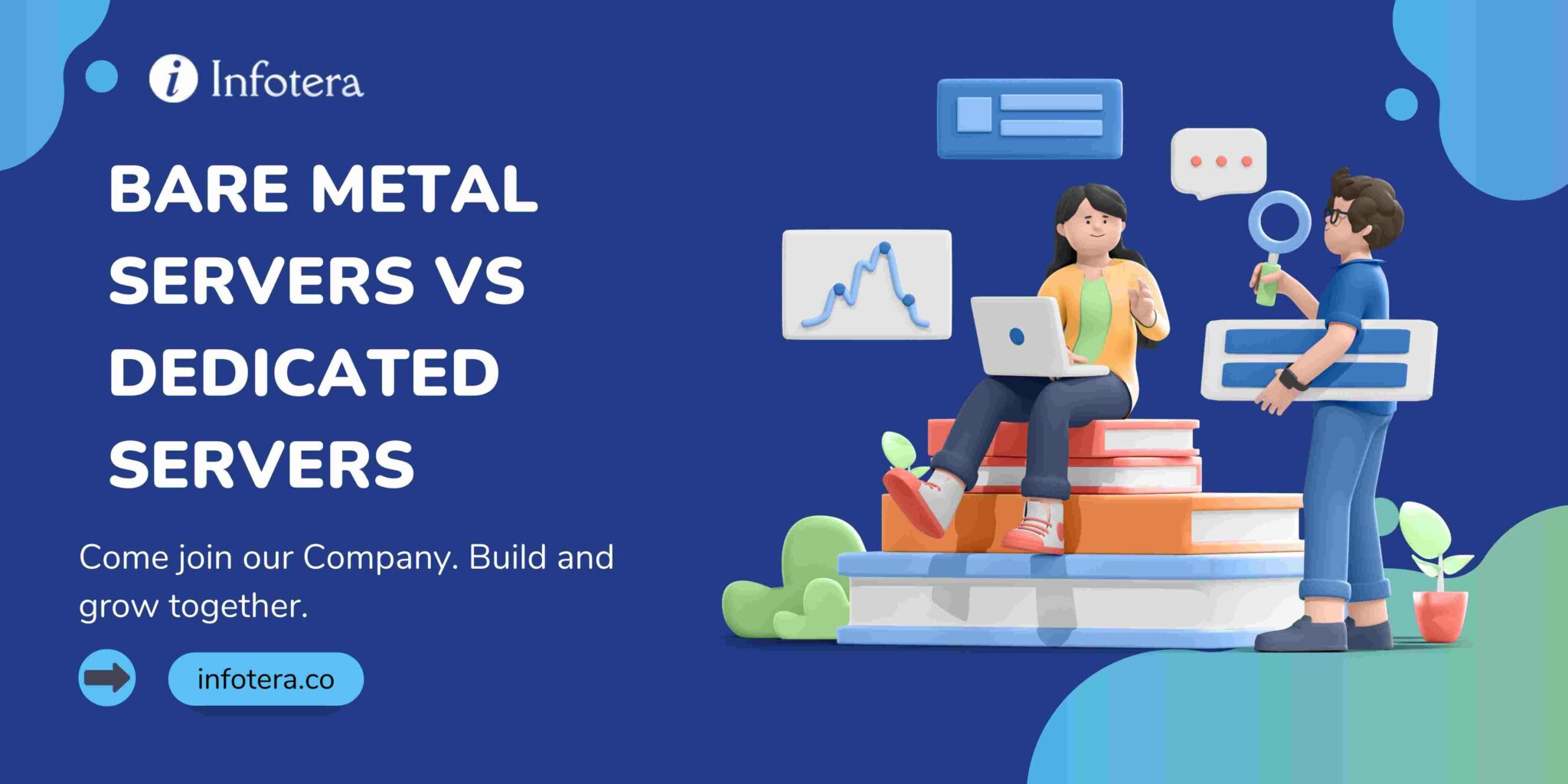The main difference between the two lies in their purpose – dedicated servers are designed for companies who need to host many websites, applications or databases simultaneously.
Bare metal servers, on the other hand, are typically used by organizations who have a large amount of data to store and analyze quickly such as big data projects.
Dedicated servers are pre-configured and ready to go, allowing for quick setup and installation. They come with the hardware, operating system and other software already installed, so you don’t have to worry about setting anything up from scratch.
It is also often more cost-efficient than bare metal servers since it allows multiple sites or applications to be hosted on the same hardware, saving you the cost of having to purchase multiple physical servers.
Bare metal servers are often used for more complex tasks such as handling large databases or dealing with high-end graphics processing.
As these tasks require a higher level of customization and configuration than dedicated servers can provide, bare metal servers need to be built up from the ground up with custom hardware, software and network components. This allows for complete control over the server, providing an optimised setup tailored to your exact needs.
Ultimately, when choosing between dedicated servers and bare metal servers, it really depends on what you need them for. If you are looking for a quick and cost-effective solution for hosting multiple websites or applications, then dedicated servers are the way to go.
If you’re looking for a more powerful server tailored to your specific needs, then look no further than bare metal servers. Whichever option you choose, make sure it is the best decision for your project before committing.
What is a dedicated server?
A dedicated server is a physical server used to host individual websites, applications or databases. It runs its own operating system and is dedicated to a single user, which means the resources of the server are not shared with other sites or applications when there are spikes in traffic.
Dedicated servers come pre-configured and ready to go, making them an ideal choice for businesses who need to provide reliable hosting without the hassle of setting up their own server from scratch. They also offer a cost-effective solution for hosting multiple sites or applications on the same hardware, saving you money in the long run.
What is a bare metal server?
A bare metal server is an unconfigured physical server that requires manual setup and installation. They are typically used for complex tasks such as handling large databases or dealing with high-end graphics processing, due to the customisation and configuration options they offer.
As bare metal servers need to be built up from the ground up with custom hardware, software and network components, they allow for complete control over the server, providing an optimised setup tailored to your exact needs.
However, this does require more time and effort than dedicated servers, so it’s important to weigh up the pros and cons before deciding which option is best for your project.
Hardware
-wise, both bare metal and dedicated servers can be decked out with the same industry-leading hardware. This includes the latest generation of AMD and Intel CPUs as well as DDR4 RAM, and large HDDs, with some packages offering up to 8TB.
However, while bare metal servers usually have these features as a prerequisite, dedicated servers may offer them as optional add-ons.
Are bare metal servers the same as dedicated servers?
No, although they may look similar on the surface, bare metal and dedicated servers have key differences that set them apart. Dedicated servers are pre-configured and ready to go, allowing for quick setup and installation compared to bare metal servers which require manual setup and installation.
Additionally, dedicated servers provide a cost-effective solution for hosting multiple sites or applications on the same hardware, while bare metal servers are better suited for more complex tasks such as handling large databases or dealing with high-end graphics processing.
What’s the difference between bare metal and dedicated servers?
The main difference between bare metal and dedicated servers is that bare metal servers require manual setup and installation, while dedicated servers come pre-configured and ready to go. Bare metal servers are ideal for complex tasks such as handling large databases or dealing with high-end graphics processing due to the customisation and configuration options they offer, whereas dedicated servers are better suited for hosting multiple websites or applications. Additionally, dedicated servers offer a cost-effective solution compared to bare metal servers.
1. Creating a private cloud setup
A private cloud setup gives you even more flexibility when it comes to customisation, allowing you to use load balancing to spread out the traffic which helps your server handle more requests without becoming overloaded.
Private cloud setups provide a secure and reliable environment for hosting applications and websites, and with CloudNX, you can run a bare metal server directly alongside multiple VMs, giving you greater power and versatility than traditional dedicated servers.
2. Security and reliability
As both bare metal and dedicated servers are housed in a secure data center, they provide an extremely reliable hosting service that is protected from external threats such as malware or hacking attempts.
Furthermore, with regular monitoring to ensure uptime, you can rest assured that your server is always performing at optimum levels.
3. Cost-effectiveness
Bare metal and dedicated servers are both cost-effective solutions, with both providing ample hardware resources at competitive prices. However, if you opt for a private cloud setup, you can save money in the long run as you’ll only pay for what you use.
Which type of server is best for you?
Ultimately, it depends on your individual needs. Dedicated servers are ideal for hosting multiple websites or applications, while bare metal servers are better suited for complex tasks such as handling large databases or dealing with high-end graphics processing.
However, if you’re looking for a more versatile and cost-effective option, then a private cloud setup could be the answer.
